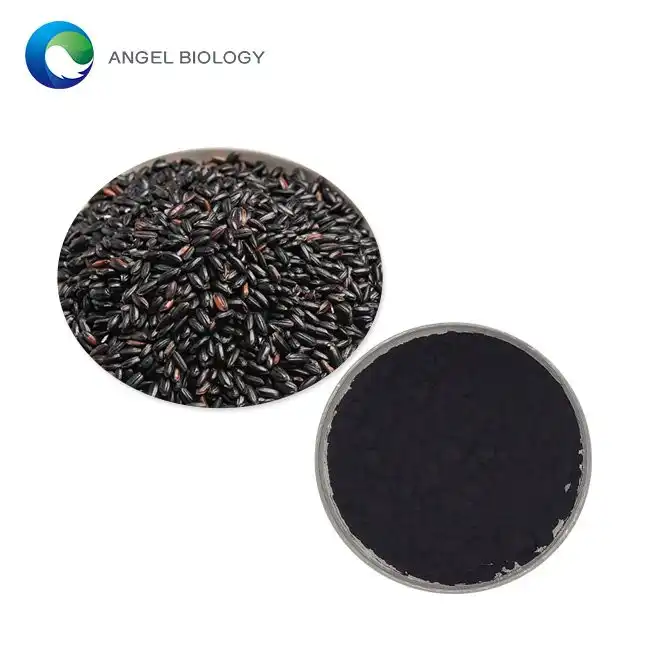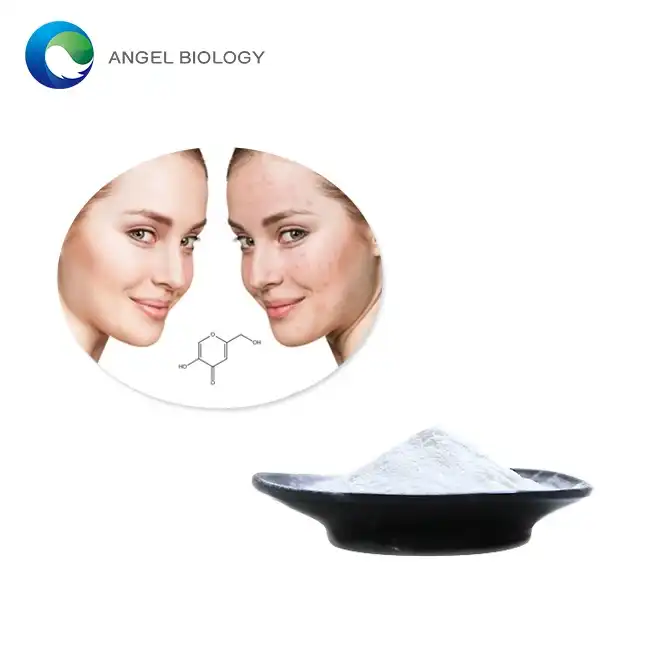Why Is Nervonic Acid Powder Critical in Infant Formula?
As parents, we always want the best for our children, especially when it comes to their nutrition and development. In recent years, there has been growing interest in the role of specific nutrients in infant formula, particularly those that support brain development. One such nutrient that has garnered attention is nervonic acid powder. This article explores why nervonic acid is considered critical in infant formula and its potential benefits for early childhood development.
Developmental Neuroscience and Early Childhood Nutrition
The first few years of life are crucial for brain development. During this period, the brain undergoes rapid growth and forms countless neural connections. Proper nutrition plays a vital role in supporting this process, and researchers have identified several key nutrients that contribute to optimal brain development.
vital role in supporting this process, and researchers have identified several key nutrients that contribute to optimal brain development.
nervonic acid powder, a long-chain fatty acid, has emerged as a nutrient of particular interest. It is naturally present in breast milk and plays a significant role in the formation of myelin, the protective sheath that surrounds nerve fibers. Myelin is essential for efficient nerve signal transmission, which is crucial for various cognitive functions.
Studies have shown that the human brain accumulates nervonic acid rapidly during the last trimester of pregnancy and the first two years of life. This period coincides with the critical window of brain development, highlighting the potential importance of ensuring adequate nervonic acid intake during infancy.
Can Nervonic Acid Optimize Infant Brain Development?
The inclusion of nervonic acid powder in infant formula aims to mimic the composition of breast milk and provide formula-fed infants with similar nutritional benefits. Research suggests that nervonic acid may contribute to optimal brain development in several ways:
- Myelination Support: Nervonic acid is a key component of myelin, which is crucial for proper nerve function. By providing infants with adequate nervonic acid, we may support the myelination process, potentially enhancing cognitive development.
- Neuroplasticity: Some studies indicate that nervonic acid might play a role in promoting neuroplasticity, the brain's ability to form new neural connections. This could have implications for learning and memory formation in infants.
- Brain Structure Development: Research has suggested that nervonic acid may contribute to the development of specific brain structures, particularly those involved in higher-order cognitive functions.
While more research is needed to fully understand the extent of nervonic acid's benefits, the existing evidence has led many experts to advocate for its inclusion in infant formula. The goal is to provide formula-fed infants with nutritional support that closely resembles breast milk, potentially optimizing their cognitive development.
Nervonic Acid's Impact on Pediatric Neurological Growth
The potential benefits of nervonic acid powder extend beyond early infancy. Some researchers suggest that adequate nervonic acid intake during childhood may have long-term implications for neurological health and cognitive function.
Several studies have explored the relationship between nervonic acid levels and various neurological conditions:
- Attention Deficit Hyperactivity Disorder (ADHD): Some research has found correlations between lower nervonic acid levels and ADHD symptoms in children. While more studies are needed, this suggests a potential role for nervonic acid in attention and focus.
- Autism Spectrum Disorders (ASD): Preliminary studies have investigated the potential link between nervonic acid metabolism and ASD. While results are not conclusive, they highlight the need for further research in this area.
- Multiple Sclerosis (MS): Although primarily an adult condition, some researchers have explored the potential protective effects of nervonic acid against demyelinating diseases like MS. This research underscores the importance of myelin health throughout life.
It's important to note that while these studies are promising, more research is needed to fully understand the long-term impacts of nervonic acid supplementation in infancy and childhood. However, the potential benefits have led to increased interest in incorporating nervonic acid powder into infant formulas and pediatric nutrition products.
The inclusion of nervonic acid in infant formula represents an effort to provide formula-fed infants with nutrients that closely mimic those found in breast milk. By doing so, Angelbio aim to support optimal brain development during the critical early years of life.
As research in this area continues to evolve, it's likely that we'll gain a deeper understanding of nervonic acid's role in infant nutrition and brain development. For now, many experts agree that ensuring adequate nervonic acid intake during infancy and early childhood may contribute to optimal neurological growth and cognitive function.
and brain development. For now, many experts agree that ensuring adequate nervonic acid intake during infancy and early childhood may contribute to optimal neurological growth and cognitive function.
Parents and caregivers should always consult with pediatricians or healthcare providers when making decisions about infant nutrition. While nervonic acid shows promise, it's just one component of a complex nutritional profile that supports infant health and development.
As we continue to unravel the intricate relationship between nutrition and brain development, nutrients like nervonic acid offer exciting possibilities for optimizing infant formula and supporting the best possible start in life for our children.
Conclusion
The inclusion of nervonic acid powder in infant formula represents a significant step forward in our understanding of early childhood nutrition and brain development. As research continues to unfold, it's clear that this unique fatty acid plays a crucial role in supporting optimal neurological growth and cognitive function in infants and young children.
If you're a parent or caregiver looking for high-quality nutritional products that incorporate the latest scientific insights, look no further than Angelbio. As an innovative enterprise dedicated to the research, development, and production of natural ingredients for health and nutrition, Angelbio is at the forefront of incorporating cutting-edge nutrients like nervonic acid into their formulations.
Angelbio's commitment to technology innovation and supply chain integration ensures that you have access to high-end, high-quality products that support global health. Their focus on natural origins and sustained improvement in safe production and quality control means you can trust their products to meet the highest international standards.
To learn more about Angelbio's range of nutritional products, including those incorporating nervonic acid, don't hesitate to reach out. Contact their expert team at angel@angelbiology.com for more information on how their innovative formulations can support your family's health and well-being.
References
1. Johnson, M. H., & de Haan, M. (2015). Developmental cognitive neuroscience: An introduction. John Wiley & Sons.
2. Lauritzen, L., Brambilla, P., Mazzocchi, A., Harsløf, L. B., Ciappolino, V., & Agostoni, C. (2016). DHA effects in brain development and function. Nutrients, 8(1), 6.
3. Tanaka, K., Farooqui, A. A., Siddiqi, N. J., Alhomida, A. S., & Ong, W. Y. (2012). Effects of docosahexaenoic acid on neurotransmission. Biomolecules & therapeutics, 20(2), 152.
4. Youdim, K. A., Martin, A., & Joseph, J. A. (2000). Essential fatty acids and the brain: possible health implications. International Journal of Developmental Neuroscience, 18(4-5), 383-399.










